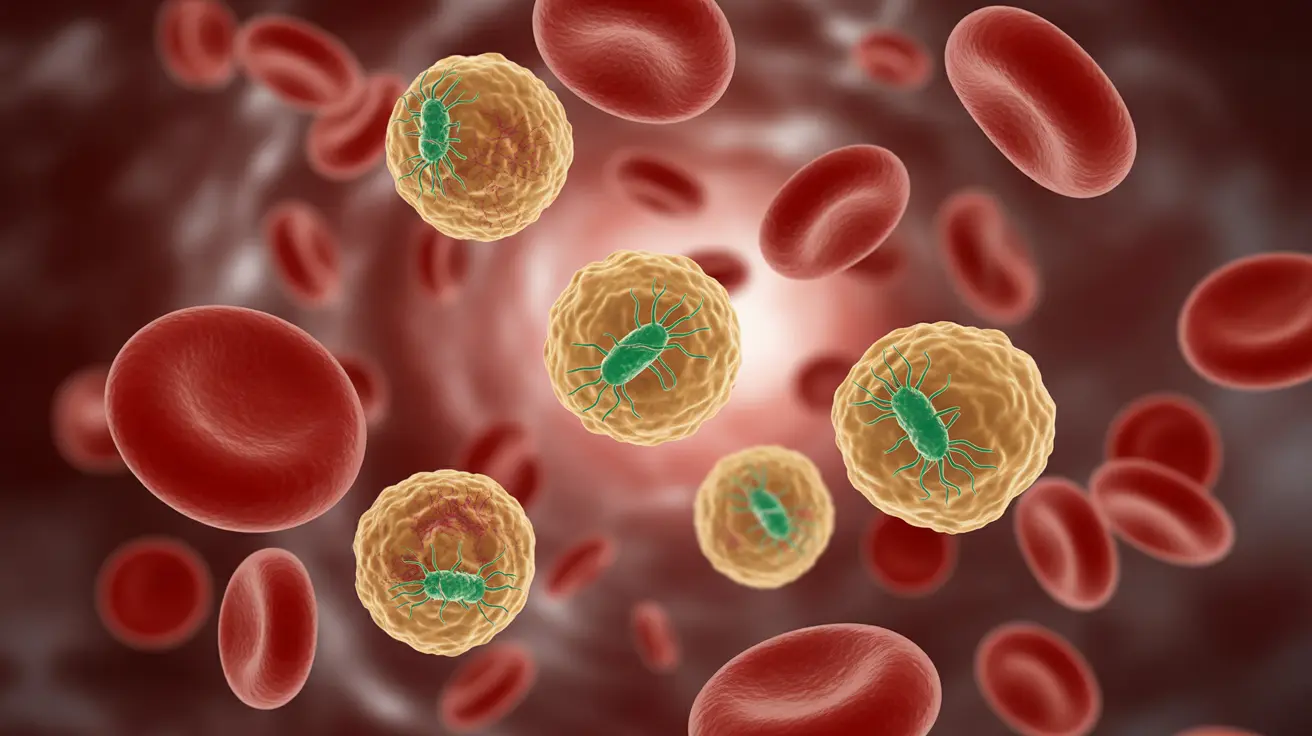When your blood test results show elevated monocyte levels, it's important to understand what this means for your health. Monocytes are a crucial type of white blood cell that helps your body fight infections and maintain a healthy immune system. An increase in these cells, known as monocytosis, can signal various underlying health conditions that require medical attention.
In this comprehensive guide, we'll explore the causes, symptoms, and treatment options for high monocyte counts, helping you better understand this common blood test finding and when to seek medical care.
What Are Monocytes and Their Normal Levels?
Monocytes are essential components of your immune system that help protect your body against harmful pathogens. These specialized white blood cells typically make up about 2-8% of your total white blood cell count in healthy adults.
When doctors evaluate monocyte levels, they look at both the percentage and absolute count. Normal monocyte ranges typically fall between 200-800 cells per microliter of blood. Levels above this range may indicate an underlying health condition requiring further investigation.
Common Causes of Elevated Monocytes
Infections
Various infections can trigger an increase in monocyte levels as your body mounts an immune response:
- Bacterial infections
- Viral infections
- Fungal infections
- Tuberculosis
- Parasitic infections
Inflammatory Conditions
Chronic inflammation and autoimmune disorders often lead to elevated monocyte counts:
- Rheumatoid arthritis
- Inflammatory bowel disease
- Systemic lupus erythematosus
- Vasculitis
Blood Disorders
Several blood-related conditions can cause monocytosis:
- Chronic myelomonocytic leukemia
- Myelodysplastic syndrome
- Polycythemia vera
- Other myeloproliferative disorders
Signs and Symptoms Associated with High Monocytes
While elevated monocytes themselves don't cause specific symptoms, the underlying conditions often present with various signs:
- Persistent fatigue
- Frequent infections
- Unexplained fever
- Night sweats
- Unexpected weight loss
- Enlarged lymph nodes
- Joint pain or swelling
Diagnostic Process
When high monocyte levels are detected, healthcare providers typically follow a systematic approach to determine the underlying cause:
Initial Assessment
- Complete blood count (CBC)
- Physical examination
- Medical history review
- Discussion of symptoms
Additional Testing
Based on initial findings, doctors may recommend:
- Bone marrow biopsy
- Imaging studies
- Specialized blood tests
- Genetic testing
Treatment Approaches
Treatment for high monocyte counts focuses primarily on addressing the underlying condition. The approach varies depending on the specific cause:
Medical Interventions
- Antibiotics for bacterial infections
- Antiviral medications when appropriate
- Immunosuppressive drugs for autoimmune conditions
- Targeted therapy for blood disorders
Lifestyle Management
Supporting overall health through lifestyle modifications can help manage symptoms and support treatment:
- Regular exercise within medical guidelines
- Balanced nutrition
- Adequate rest and sleep
- Stress management
- Regular medical monitoring
Frequently Asked Questions
What are the common causes of a high monocyte count in blood tests?
Common causes include bacterial and viral infections, chronic inflammatory conditions, autoimmune disorders, and certain blood disorders such as chronic myelomonocytic leukemia. Persistent infections and chronic diseases are often responsible for elevated monocyte levels.
Can a high monocyte count indicate an infection or autoimmune disease?
Yes, elevated monocytes can indicate both infections and autoimmune diseases. They serve as an important marker for your immune system's activity and can help doctors identify underlying conditions requiring treatment.
What symptoms might suggest I need to get my monocyte levels checked?
Common symptoms that might warrant monocyte level testing include persistent fatigue, frequent infections, unexplained fever, night sweats, weight loss, and swollen lymph nodes. However, some people with high monocytes may be asymptomatic.
How is monocytosis diagnosed and what follow-up tests are needed?
Monocytosis is diagnosed through a complete blood count (CBC). Follow-up tests may include bone marrow biopsy, imaging studies, and additional blood tests to determine the underlying cause. The specific tests ordered depend on your symptoms and initial findings.
What treatments or lifestyle changes can help manage a high monocyte count?
Treatment depends on the underlying cause and may include antibiotics, antiviral medications, or immunosuppressive drugs. Lifestyle changes such as maintaining a healthy diet, regular exercise, adequate sleep, and stress management can support overall health and treatment effectiveness.




